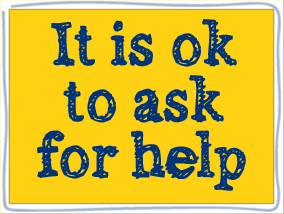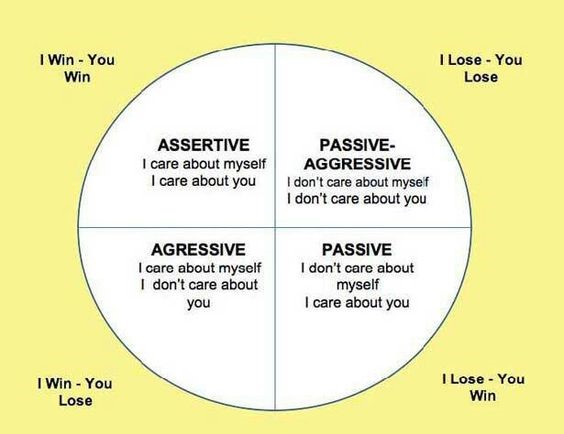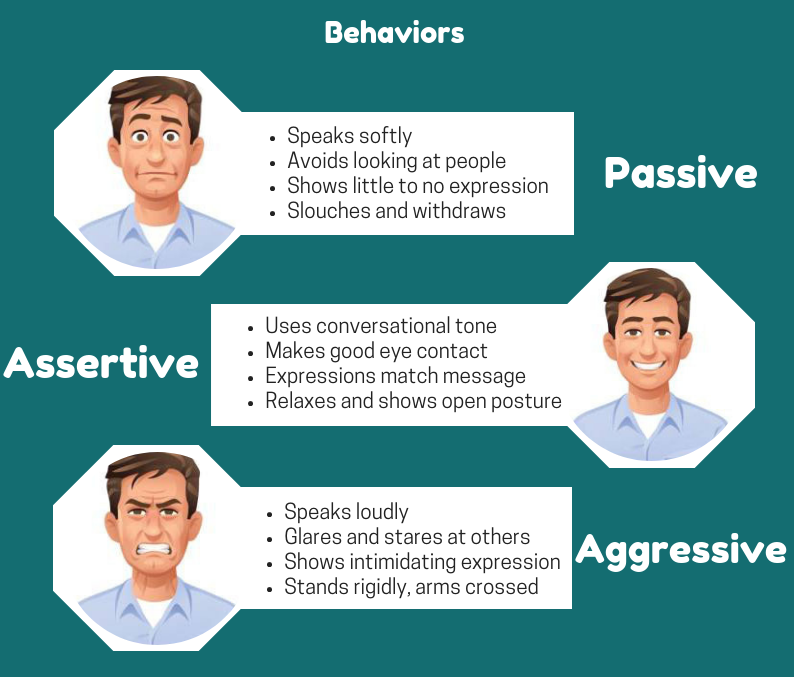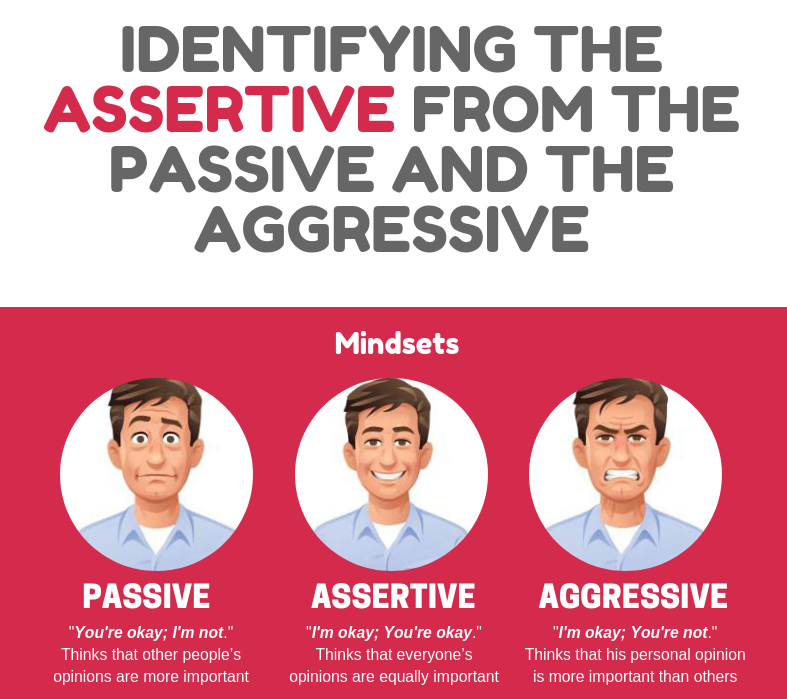ASSERTIVENESS
WHAT DOES IT MEAN TO BE ASSERTIVE?
Being assertive falls right in the middle of being passive and being aggressive. If you're passive, you might never get to vocalize your needs; if you're aggressive, you'll come across as a big bully and will likely be misdirecting your frustrations. But, if you're assertive, you'll be able to express your desires while respecting the needs of others, and you'll have a better chance of getting what you want and deserve.1
Being passive: This is often characterized by generally saying “yes” when you want to say “no”. Feeling bad about voicing your own opinions and not wanting to disappoint others by not agreeing to what they want. Passive behaviour often leads to feeling overwhelmed and then not meeting your own deadlines because you’ve been too busy helping others with theirs.2
Being aggressive: Here you tend to undermine someone else’s rights and self-esteem2. You fail to consider the views and feelings of others, and generally believe your way is the best way.
Being assertive: The happy medium between the two. It means standing up for your personal rights (thoughts, feelings, and beliefs), in direct, honest and appropriate ways, while still being respectful of others.2
BENEFITS OF BEING ASSERTIVE3,4
In general, assertive people:
Make great managers. They treat people with fairness and respect, and are treated the same way in return. This means that they are often well-liked and seen as leaders that people want to work with.
Negotiate successful "win-win" solutions. They are able to recognize the value of their opponent's position and can quickly find common ground with them.
Are better doers and problem solvers. They feel empowered to do whatever it takes to find the best solution to the problems that they encounter.
Are less anxious and stressed. They are self-assured and don't feel threatened or victimized when things don't go as planned or as expected.
HOW TO SOUND MORE ASSERTIVE5
Start with “I”
Statements that start with “I” sound confident, factual and assertive.
Instead of saying “You make me feel sad when…”, say “I feel sad when…”
Instead of saying “You make me angry when…”, say “I am upset that…”
Instead of saying “You frustrate me…”, say “I feel frustrated when…”.
Avoid words that undervalue what you’re saying
Instead of saying, “I could be wrong, but…” say, “I believe…”
Instead of saying, “This might sound crazy…” say, “I have a great idea…”
Change your verbs to sound more assertive
Will instead of could, should, or might
Need instead of want
Use “feel” statements
When […] I feel … e.g. “When you don’t listen to me I feel disrespected”.
Set clear boundaries
Learn to say no. When you are being assertive you are stating facts, not apologising or explaining, e.g. “I’d love to help but today won’t work. Tomorrow will be better”.
KEY SKILLS TO ASSERTIVE COMMUNICATION6
Show respect to others
Communicate clearly
Control your emotions
Admit your mistakes and apologize
Be willing to achieve a compromise
Communicate openly and honestly
NON-VERBAL SKILLS6
Posture – open and relaxed
Voice – medium pitch and volume
Eye contact – maintain positive eye contact
Gestures – open and rounded gestures
Smiles that show empathy
Distance – personal space
Have a look at https://www.youtube.com/watch?v=lrUmTRAlBFg&feature=emb_logo for a clear explanation of the above7.
Click here for assistance and support: 
References:
1 Fisher, M. (2014). Understanding your anger: Anger (Part 2). Myfamilycare.co.uk. Retrieved from https://www.myfamilycare.co.uk/resources/news/anger-part-2.
2 Skillsyouneed. (2017). Assertiveness – An introduction. Skillsyouneed.com. Retrieved from https://www.skillsyouneed.com/ps/assertiveness.html.
3 Mindtools.com. (2019). How to be assertive: Asking for what you want firmly and fairly. Retrieved from https://www.mindtools.com/pages/article/Assertiveness.htm.
4 Meacham, A. (2019). Assertive – Passive – Aggressive: Which works best? Leadership Dynamics. Leadershipdynamicstoday.com. Retrieved from http://www.leadershipdynamicstoday.com/assertive-passive-aggressive-which-works-best/.
5 Fowler, A. (2019). How to be assertive in English to sound more confident. Speak Confident English. Retrieved from https://www.speakconfidentenglish.com/be-assertive-in-english/.
6 Assertive communication skills. (2020). [Image]. Business infographics. Retrieved from https://www.businessphrases.net/wp-content/uploads/2017/02/assertive-co….
7 Mindtoolsvideos. (2017, October 13). How to be assertive. Retrieved from https://www.youtube.com/watch?v=lrUmTRAlBFg&feature=emb_logo

Compiled by Salome Smith (Registered Counsellor and Psychometrist at Student Counselling and Development, Potchefstroom Campus)
Updated May 2020


